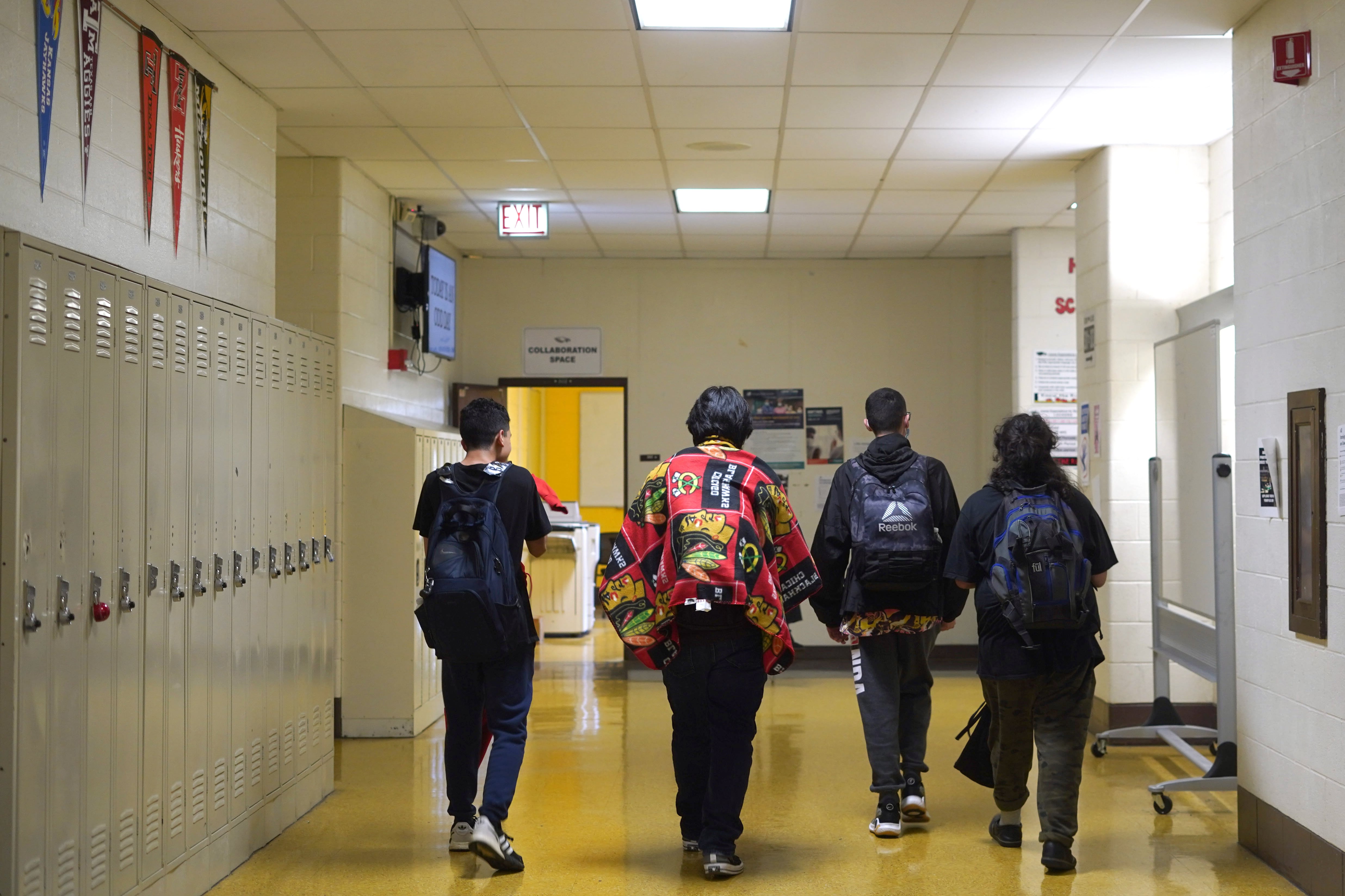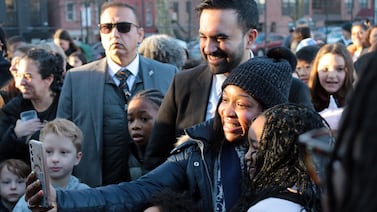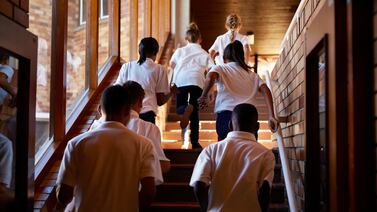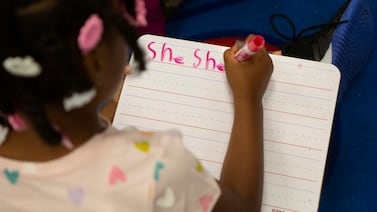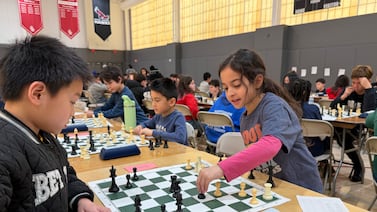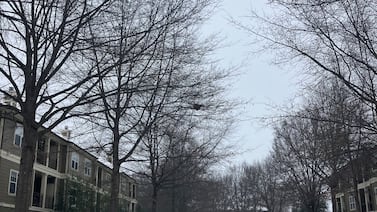Sign up for Chalkbeat Chicago’s free daily newsletter to keep up with the latest education news.
Educators, parents, and advocates lobbied the Illinois State Board of Education to request an additional $550 million for K-12 schools from state lawmakers for the next school year during a Thursday budget hearing.
That increase would be $200 million more than what state lawmakers put into the evidence-based funding formula for K-12 schools for the current budget. When the state created its school funding formula in 2017, legislators reached a bipartisan agreement to increase funding $350 million each year. But K-12 advocates have said for the last few years that schools need more money to deal with a variety of urgent issues, from staffing shortages to newcomer students.
The deadline for spending or earmarking the state’s almost $7 billion in federal COVID relief funds was at the end of last month, although Illinois indicated it would seek an extension for spending the money. But as a result, local schools could see a reduction in staff and programs next school year, if they haven’t already experienced cuts this year.
The Illinois State Board of Education kicked off budget hearings this month to ask parents, teachers, district leaders, and advocates what they think the state board should ask the state’s General Assembly to fund during fiscal year 2026, which covers the 2025-26 school year.
Jason Sitko, a third grade teacher in Chicago Public Schools who’s worked in city schools for over 17 years, told the board that his school needs a librarian, dean of students, special education teachers, teaching assistants, and paraprofessionals.
Sitko says that he currently has a student with a 504 plan that requires the teacher to check in with the student every five to 10 minutes about needing extra help. But that’s difficult for him because he’s in his classroom without any other staff, trying to meet the various needs of 25 students.
“After I teach a math lesson, for example, I ask a few students to come sit at my table so that I can read the directions to them, because they cannot yet read and are still struggling with the concept of multiplication, and they need intensive support,” said Sitko. “I may have a student pouting in the hallway because something didn’t go well for him at recess. I might have another student walking around bothering his classmates because he is emotionally dysregulated.”
Brianna Roman, a parent who is sending her child to Berwyn schools in Chicago’s west suburbs, said that while the evidence-based funding formula improved the district’s finances, she says that it’s not enough due to inflation increasing costs.
“Every parent wants to know that wherever they send their children to school, they have the resources they need to succeed,” said Roman. “This includes the proper learning environment, enough special education and bilingual teachers, speech therapists, counselors, case managers, teachers, assistants, librarians, after school programs, updated books and technology.”
Both Sitko and Roman said they want the board to advocate for $550 million to go to the evidence-based funding formula.
Other advocates also spoke strongly in favor of more funding for additional funding to support students experiencing homelessness.
April Harris, a parent and a grassroots leader of the Chicago Coalition for the Homeless, requested state board officials seek an additional $5 million to support the growing needs of students who are experiencing homelessness — including some newcomer students who have immigrated from other countries — and help identify them.
“Almost 20,000 new arrivals have been bused to Illinois over the last year. Newly arrived migrant students are living in shelters, police stations, on the street or in other temporary situations, are experiencing homelessness, and therefore are McKinney-Vento eligible,” said Harris, referring to the federal law governing access to public education for students experiencing homelessness. “School districts and [the state school board] will need support to provide students with the services to which they are entitled.”
Speakers also sought to secure funding for after-school programming.
Eboni Prince, senior program director at After School Matters in Chicago, asked the board to keep funding for the organization at $6 million. The group has served thousands of high school students across Chicago, many of whom are students of color who come from low-income households. Prince said during fiscal year 2024, 80% of teens said that they felt really supported by their instructors.
The board’s funding “is crucial as we continue to empower young people to create a brighter future through our programming and partnerships,” said Prince.
After School Matters gets funding from a line item in the state’s education budget that’s separate from the evidence-based formula.
Meanwhile, Chicago Public Schools has passed an almost $10 billion budget, but the district has made cuts to central staff and administration. The district is projecting a $500 million deficit next year, and that does not account for its pending contracts with Chicago Teachers Union and Chicago Principal and Administrators Association, which are both currently in negotiations with the district.
Other requests at the hearing for more funding dealt with issues like agricultural education and early childhood education.
The state board’s next public budget hearing will be a virtual hearing on Oct. 28 between 1 p.m. to 4 p.m.
In previous years, the Illinois State Board of Education announced its proposed budget before the end of January, right before the annual budget address from the governor. Usually, Gov. J.B. Pritzker’s budget and State of the State address takes place in February as the spring legislative session is underway.
Samantha Smylie is the state education reporter for Chalkbeat Chicago covering school districts across the state, legislation, special education and the state board of education. Contact Samantha at ssmylie@chalkbeat.org.

